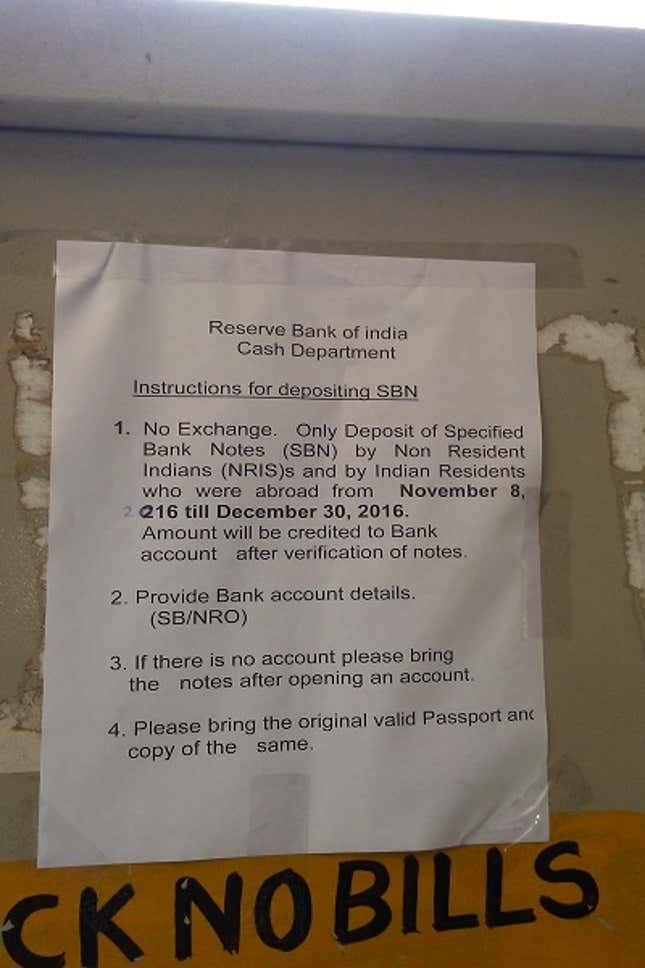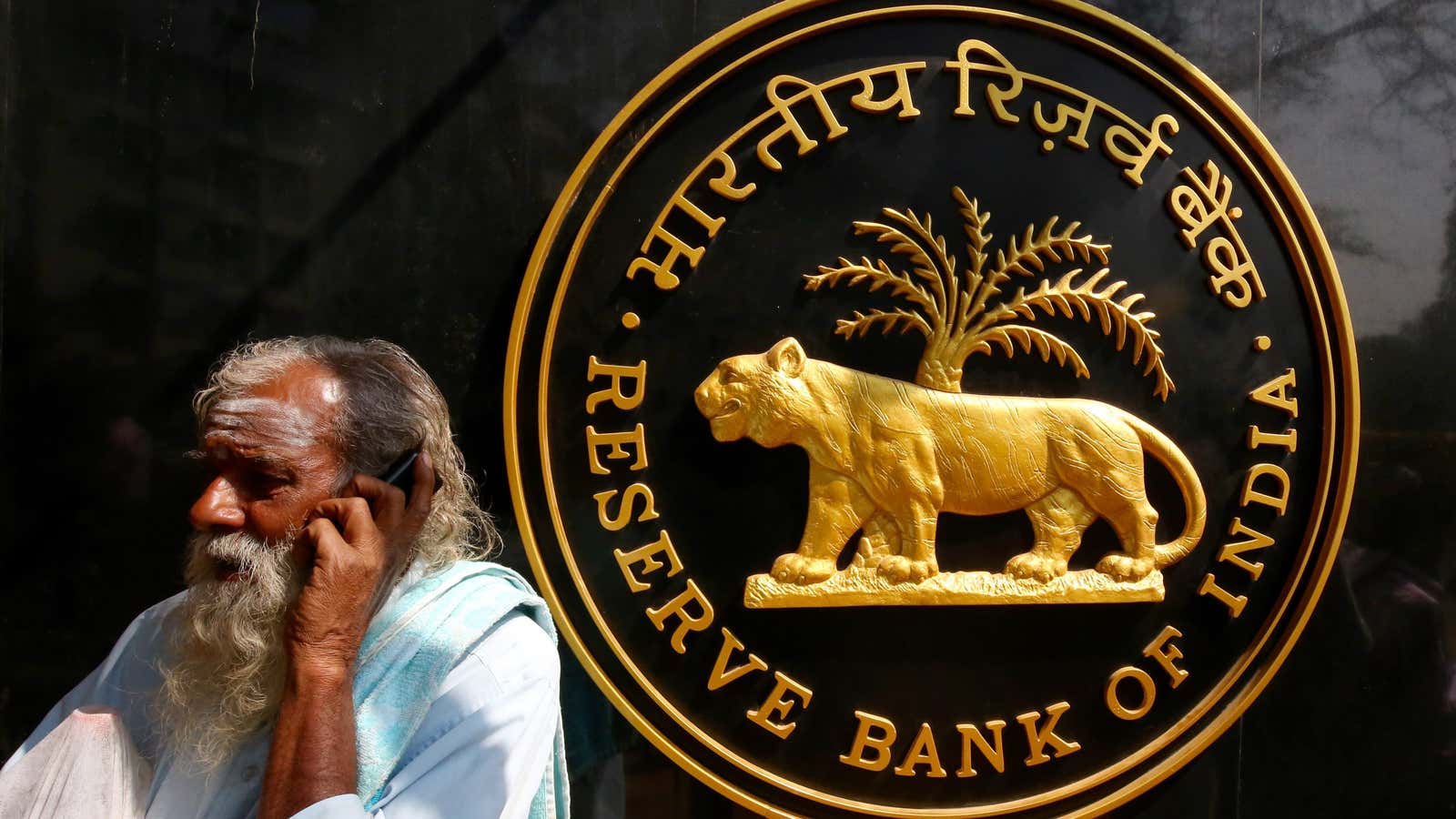It is the second week of January 2017 and the deadline to deposit old Rs500 and Rs1,000 notes is long gone. But the queues outside the Reserve Bank of India (RBI) offices across the country show no sign of clearing up.
Towards the end of December, the Narendra Modi government came out with an ordinance that rendered possession of old currency notes, as well as any transactions in them, illegal. However, the 50-day period from Nov. 08, when demonetisation was announced, to Dec. 30 saw frequent changes in rules and regulations related to withdrawal and deposit limits. Even the relaxation of rules for non-resident Indians (NRIs), and those Indians who couldn’t get the notes exchanged as they were abroad, came at the last minute after a lot of confusion.
Prime minister Modi had promised in his Nov. 08 speech that they would be given adequate options even after Dec. 30. This explains why many say they feel cheated as they relied on his assurances that genuine reasons for depositing old notes beyond the deadline would be given due consideration.
One lady, angry over her failed attempts over three days to exchange Rs5,000 at RBI’s Delhi office, protested by stripping in front of the bank.
Our rounds of the RBI headquarters in Mumbai showed 50-60 people gathered near the entrance, tense and frustrated. Most of them were unaware of the change in rules that allowed only NRIs to exchange invalid currency notes at RBI branches after Dec. 30 and were angry about their inability to communicate with RBI officials for proper information.
These officials appeared once in a while on the other side of the entrance and let the NRIs in, while the rest were barred. Some of the people in the queue were also under the impression that anyone carrying a passport could exchange the notes. One person shouted in anger, “Khali foreigner logon ke liye, Indian keheke fayada kya hain?” (Only for the foreigners! What’s the point of being an Indian then?)

As much as one empathises with those still stuck with the invalid notes, some of the reasons they provided for not exchanging them within the specified period were strange. However, the fact that many of them came to exchange such small amounts suggests that they are likely to be genuine cases.
Here are some of the reasons they gave:
Cow offering: A person from Mumbai’s Powai locality carried Rs2,500 that he had collected from the “gaai ka dabba” (the cow’s box), the offerings made to cows which are considered sacred.
Money found inside a folded saree: A beautician from Bandra found Rs20,000 kept inside a folded saree in her cupboard while cleaning her house on the first day of the year.
Piggy bank treasure: An architecture student from Saboo Siddik College, Byculla, said she found Rs2,500 in her piggy bank when she opened it to gather money for a college picnic.
Saved it from alcoholic son: Vijaya, a housewife from Thane, came to deposit her mother-in-law’s Rs7,000 in demonetised notes. Hidden from her alcoholic son, the mother-in-law could not find it until recently.
Forgotten wedding gift: A couple from Marine Lines found an envelope with Rs3,000 which they received on their wedding day in December 2015.
A senior citizen’s memory failed her: A 78-year-old lady from Vapi, Gujarat, came with her daughter who said that her mother was losing her memory and had forgotten about the Rs5,000 pension amount kept in a cupboard. She travelled all the way from Gujarat to her daughter’s home in central Mumbai on finding the money.
Money found under the bed: A senior citizen from Kurla brought Rs5,500 that he found under his ailing wife’s bed. He did not know that only NRIs can deposit money after Dec. 30.
While there were some people who were alright with being unable to exchange their small amounts, a majority of those we met could not bear the loss of their hard-earned money.
Demonetising 86% of the notes in circulation was never going to be an easy job. In a country of 1.2 billion people, there will always be latecomers. Considering that such a massive exercise was sought to be completed within 50 days, maybe the government should now open a fresh window, with exchange limits, for those who were left out in the process. After all, this was an exercise to flush out black money hoarders, not the economically deprived.
This post first appeared on Boomlive.in. We welcome your comments at ideas.india@qz.com.
